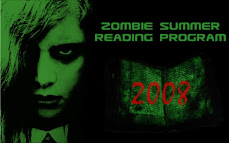
Animals Make Us Human: Creating the Best Life for Animals by Temple Grandin and Catherine Johnson
We call our little family the Potts/McCoy house, but really, it's the Spike/Widget house. They run things around here. Potts and I can't force each other to make coffee in the morning or clean the bathroom, but the kitties can, and routinely do. If the food bowl is empty in the morning, Widget climbs into bed and pulls my hair until I get up and feed her. If I've let the litter box go a day or two without scooping, Spike will take a spiteful tinkle on the kitchen floor to alert me to the problem.
They're not our children, and they're certainly not our "furbabies" (gag), but when we took them in, we made an unwritten oath to take care of them and make them as happy and secure-feeling as possible for the rest of their lives.
Temple Grandin's books on animal behavior are uniquely useful because they seek to bridge the gaps between scientists, non-academics who work in the field with animals, and anyone who has animals in their lives, which is pretty much everybody. Grandin's insights are also unique because she is autistic, which informs her observations about animal behavior. She's said on many occasions that autism makes her think in pictures rather than words, and causes her to become highly attuned to the small details in her environment -- and these thought patterns place her more closely in synch with animal behavior than most other people.
Early in her career, Grandin was best known for her work in slaughterhouses, which puts some people off right away. However, it's worth looking closer. Grandin observed that in many slaughterhouses, cattle were going to their deaths in a state of terror and panic, forced along with electric prods. So, she designed the center-track restrainer, which nearly every cow will walk straight through without fear. It's now used in most slaughterhouses in the U.S.
If we're going to eat meat, she reasons, we at least owe the animals that we eat the best life possible, and a humane death.
In Animals Make Us Human, Grandin expands her scope to include domesticated animals, wildlife, and animals in zoos, as well as a wider range of livestock, including horses, pigs, and poultry. The premise of the book is that animals do experience four core emotional behaviors: RAGE, FEAR, SEEKING, and PANIC (Grandin always writes these out in all-caps in the book). Our job is to encourage the positive seeking and play behaviors, and to properly manage animals' environment so that FEAR, PANIC, and RAGE play as small a role in animals' experience as possible.
With a well-socialized, easy-going dog that gets a lot of attention and exercise, this is pretty easy to do. With a large animal confined in a zoo, it's a lot harder.
Grandin's chapter on zoo animals is particularly upsetting, especially when she's talking about the conditions faced by the large animals. For example, polar bears are ranging animals that will travel over 5 miles a day in the wild. So, when they're confined in zoos, it tends to affect them badly. One polar bear she writes about would spend up to 80% of his waking hours engaging in what Grandin calls "stereotyping," or abnormal repetitive behaviors. After an animal behaviorist was called in to enrich Gus the polar bear's environment, the zoo was able to get his stereotyping down to about 10%. However, these kinds of observations really call into question the ethics of keeping large animals in zoos.
On a happier note, if you have dogs or cats, you'll likely learn a great deal about their own behavioral quirks, what you can fix, and more importantly, what you probably can't.
Grandin writes that animals with light skin and eyes tend to be a little more neurotic than those with darker skin and eyes - they're recessive traits. When I read, "I've noticed that neutered orange males and females can be very affectionate. Some orange cats will rub on you all day. However, orange cats startle and scare easily," I looked up at Spike and said, "She's TALKING about you." And then Spike nuzzled my hand, and ran away. And when I read, "Sarah Hartwell, a shelter worker in England, calls black cats "laid-back blacks" and tortoiseshell cats "naughty torties," I looked up at Widget and said, "Now she's talking about YOU." And then Widget stuck her butt in my face and started to attack my feet for no good reason.
Ah, my little darlings.
It's an engaging, thought-provoking book, which I recommend to anyone who has animals in their lives, which once again, is everybody. Here's Grandin talking about the book and her work:








